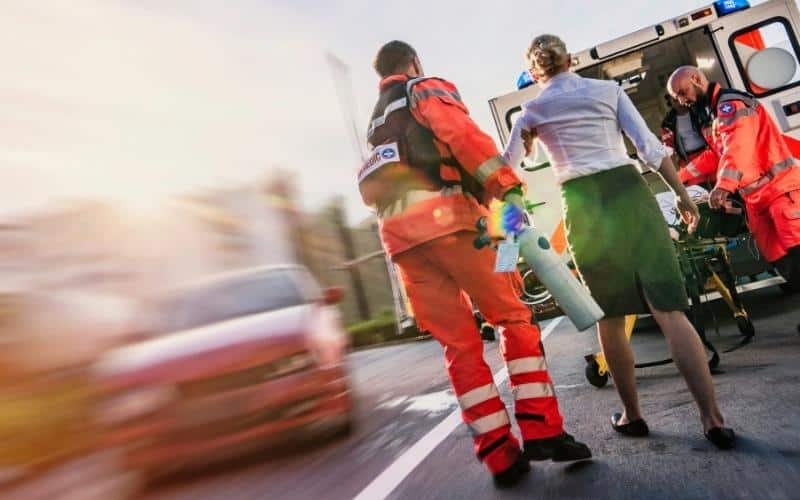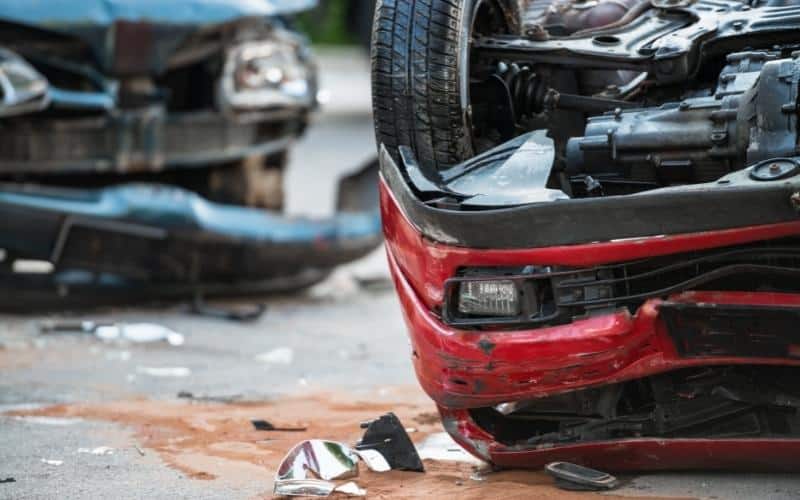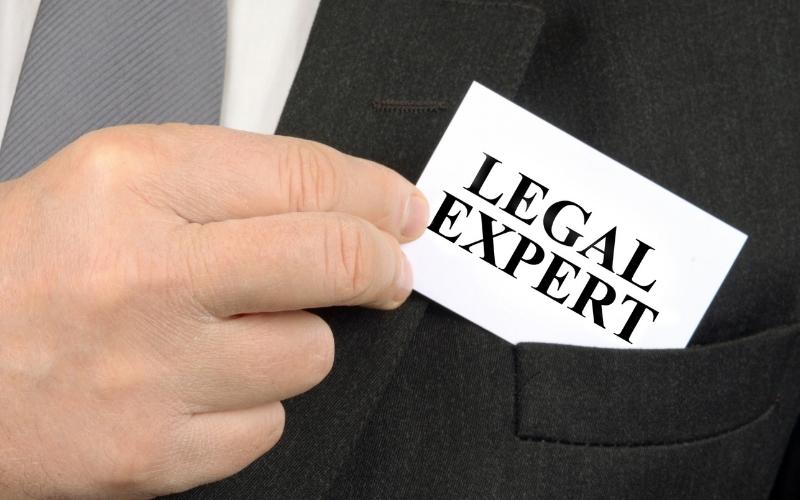While drunk driving is always a punishable offense, the impacts for intoxicated drivers raise whenever an accident happens. An accident is defined as a collision between a drunk driver’s car and another vehicle, person, or property.
The circumstance described in the article involves drunk driving accidents from a defense standpoint. It describes what to do instantaneously after such traffic accidents, the legal ramifications of the accident, and also some basic legal advice for people having to navigate Operating while intoxicated situations involving accidents.
Drunk driving mishaps are frightening, but it’s vital to know that they happen a lot. One word of advice will remain consistent throughout this writing: it is critical that you keep friends and allies to help you survive this complicated procedure.
Hiring a leading drunk driving defense lawyer is among the best first leaps in this complex task. In the state of Wyoming, there were 5,174 alcohol-related accidents in the year of 2015. As a result, it is possible to assert that such events occur on a regular basis.
What to do If you’ve been involved in a drunk driving accident
Following a drunk driving accident, there are a few crucial steps to take. First and foremost, wait at the incident site. Standing at the scene of the accident is unquestionably the proper thing to do. Maintain your composure. Following that, there are several actions you may take to help mitigate any potential harm you could face:
- Communicate directly with any emergency responders that may have been required. Obviously, if you, some other driver, pedestrians, or anyone else is injured, minimizing the harm is critical. When we take into account the distinction between bodily injury, great bodily injury, and demise, hit and run penalties are fairly different.
- After that, take pictures of the situation. It’s possible that an investigation will hinge on your word against the person you hit. Pictures give accurate and valid records of an accident site.
- Is it appropriate for you to assist the other driver? This is a controversial question. While preventing any injury is crucial, you run the danger of only a few things. First and foremost, that individual is a sufferer. He or she will testify against you in court. And everything you do in their presence will undoubtedly be used against you in court. “Render appropriate help to anyone harmed in the tragedy,” at the very least.
- Finally, be ready to deal with law enforcement. They will interrogate you. Field sobriety tests can be administered by a law enforcement officer.

What happens if I run from the accident scene?
Escaping the site of an accident is undoubtedly a difficult situation. When it comes to allegations like murder by drunk driving, there are a few arguments to consider. These defenses are not applicable to hit-and-run allegations that result in death.” The accused has a defense if he or she can establish by a majority of the proof that the fatality would have resulted even if he or she had taken due precautions and was not inebriated,” according to Wisconsin Laws section 940.09(2).
Again, this only applies if the homicide was caused by drunk driving. Obviously, this only holds if it’s a situation of homicide by inebriated driving. If you depart and are accused of the hit-and-run causing the demise of someone, you will be prosecuted with a Class D felony and might face a sentence of up to 25 years in jail. Lastly, section 346.67 of the Wisconsin Statutes addresses a driver’s responsibilities in the event of a collision with a passenger or an inhabited vehicle.
The law implies: The driver of a vehicle involved in accidents must fairly evaluate what was attacked, and if the driver realizes or has the chance of knowing that the accident appears to result in harm or damage to an individual or harm to a vehicle driven or responded by an individual, the driver must turn off the engine he or she is going to operate as nearer to the accident as potential and persist at the scene of the accident till the driver has [supplied his details].
Secondly, expect to be arrested by police departments. However, that’s about all you can do once you’re in this predicament. If you’re driving while inebriated and get into a car crash, the authorities are going to prosecute you. Lastly, speak with a lawyer that specializes in drunk driving defense.
Obtaining legal assistance as soon as possible is the first step in combating drunk driving charges. Law enforcement isn’t just good at figuring out what occurred at the accident scene. They want to make arrests and make a reference to the district lawyer. To guarantee that your interests are preserved, you must choose a top criminal defense lawyer. Defending yourself against any type of criminal indictment is not a great thing.

Does It make a difference who or what led to the accident?
If you caused the collision, whether it was because of your intoxication or because of a puppy in the center of the road, you might expect harsher legal sanctions. Yet, just because you were in an accident while being charged for a DWI doesn’t indicate you were guilty. It’s critical that you tell your DWI lawyer every related aspect of what transpired. If some other vehicle was at fault – for example, if they ran off the road or failed to stop at a stop signal – this can aid you in the court.
Penalties for drunk driving
Getting a DUI or causing a drunk driving accident are both severe offenses that can result in harsh punishment. Vast numbers of people get hurt and hundreds are killed every year in every state as a result of drink and drug accidents. Every year, tens of thousands of people are convicted in the state of Michigan for driving under the influence of alcohol.
Driving a car necessitates alertness, manual dexterity, and a sense of responsibility for oneself and the others on the road, all of which can be harmed by drinking. Operating While Impaired (OWI) and Driving Under the Influence (DUI) convictions have consequences that might harm you either now or in the future. It’s imperative to remember that these offenses are felonies, and they can have a significant influence on your career prospects.
First DUI penalties (in Michigan) include:
- Suspension of license (up to six months)
- 6 points on the license of your driver
- Driver’s responsibility fee ($1,000 each year for 2 years)
- Prison sentence (up to 93 days)
- Fines (up to $500)
- Community services (up to 360 hours)
- OWI allegation on your permanent records
The consequences for a second violation (or a first offense with a blood alcohol level of.17 or higher) might be even harsher. Your insurance rates will also rise dramatically. If you are accused of inducing injury and death harm while driving while intoxicated in the state of Michigan, the penalties are likely to be substantially harsher.
In case of death, the fine is $2,500-$10,000 and/or a jail sentence of up to 15 years. And in cases of severe injuries, the fine is $1,000-$5,000 and/or a jail sentence of up to 5 years.
Additional ramifications (for both fatalities and injuries):
- Revocation of a driver’s license (minimum of 1 year)
- Concealment of license plates
- Six points on the license of your driver
- Fee for Driver Responsibility ($1,000 each year for two years)
- Immobilization of the vehicle (for up to 6 months)
- Possible vehicle seizure
Related Article: How Much Is a Lawyer For a Car Accident

Assistance from a renowned legal expert
Those who are engaged in a traffic accident will undoubtedly face a slew of legal troubles. The alcohol limit for blood alcohol is 0.08, and driving with a higher potential than that is considered drunk driving. If indeed the driver is below the age of 21, the alcohol limit is 0.00, as persons under the age of 21 are not permitted to drink excessively.
While OWI convictions are sensitive issues, not all of them result in charges. a lawyer can work with you to comprehend the circumstances surrounding your case. Many full-service law companies are there in an attempt to uphold your interests. Feel free to call your nearby good law firm to start a conversation that could help you keep your independence and secure your destiny, particularly your job chances.
A lawyer can assist anyone with filing documentation linked to these critical circumstances, answering questions about legal terminology, negotiating with insurance providers to ensure claims are handled, and even representing someone in the court. Most significantly, a lawyer can assist a family in determining what is to their greatest advantage and may uncover legal choices that they were unaware of.
Those that have experienced severe injuries as a result of an accident involving a drunken or other impaired driver must seek legal advice from a professional personal injury lawyer. For a typical person, managing the judicial process, especially after a traffic accident, might be challenging. A legal advisor can assist clients in determining which option is best for them.
